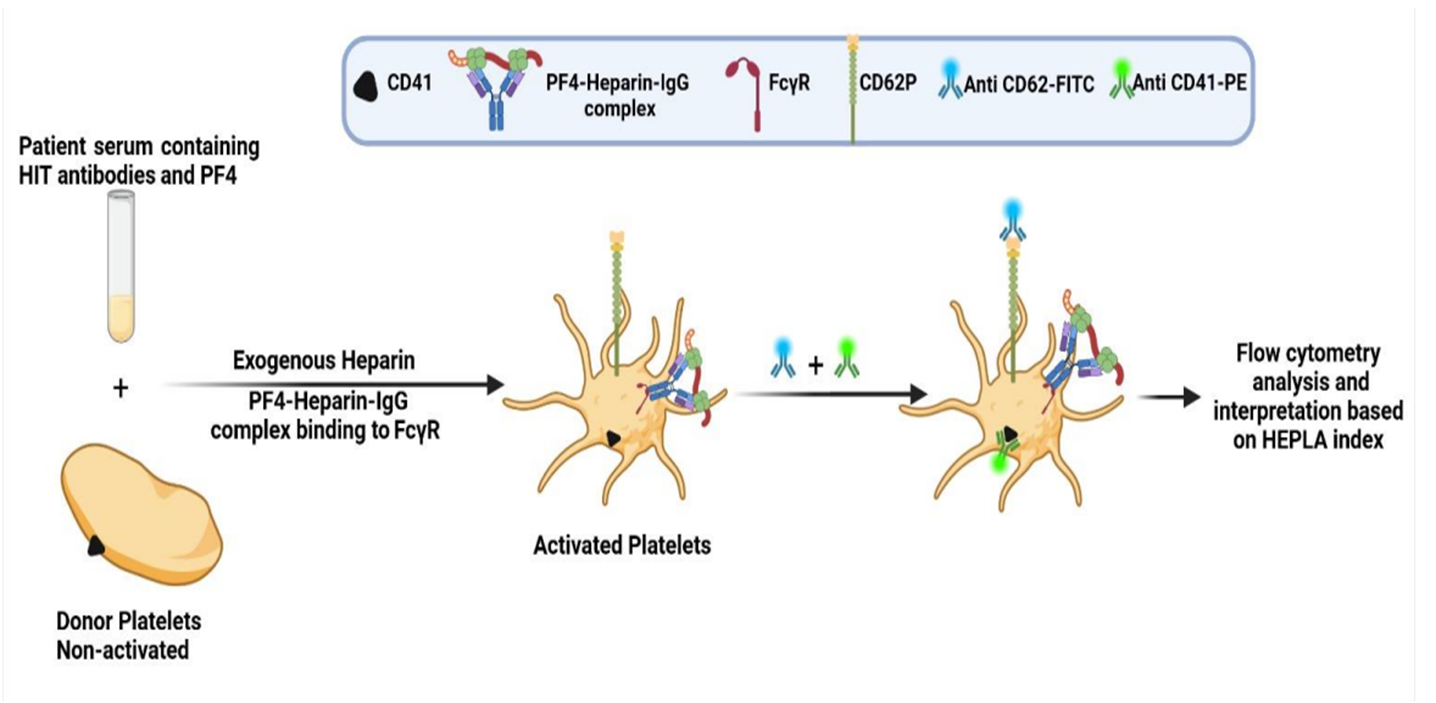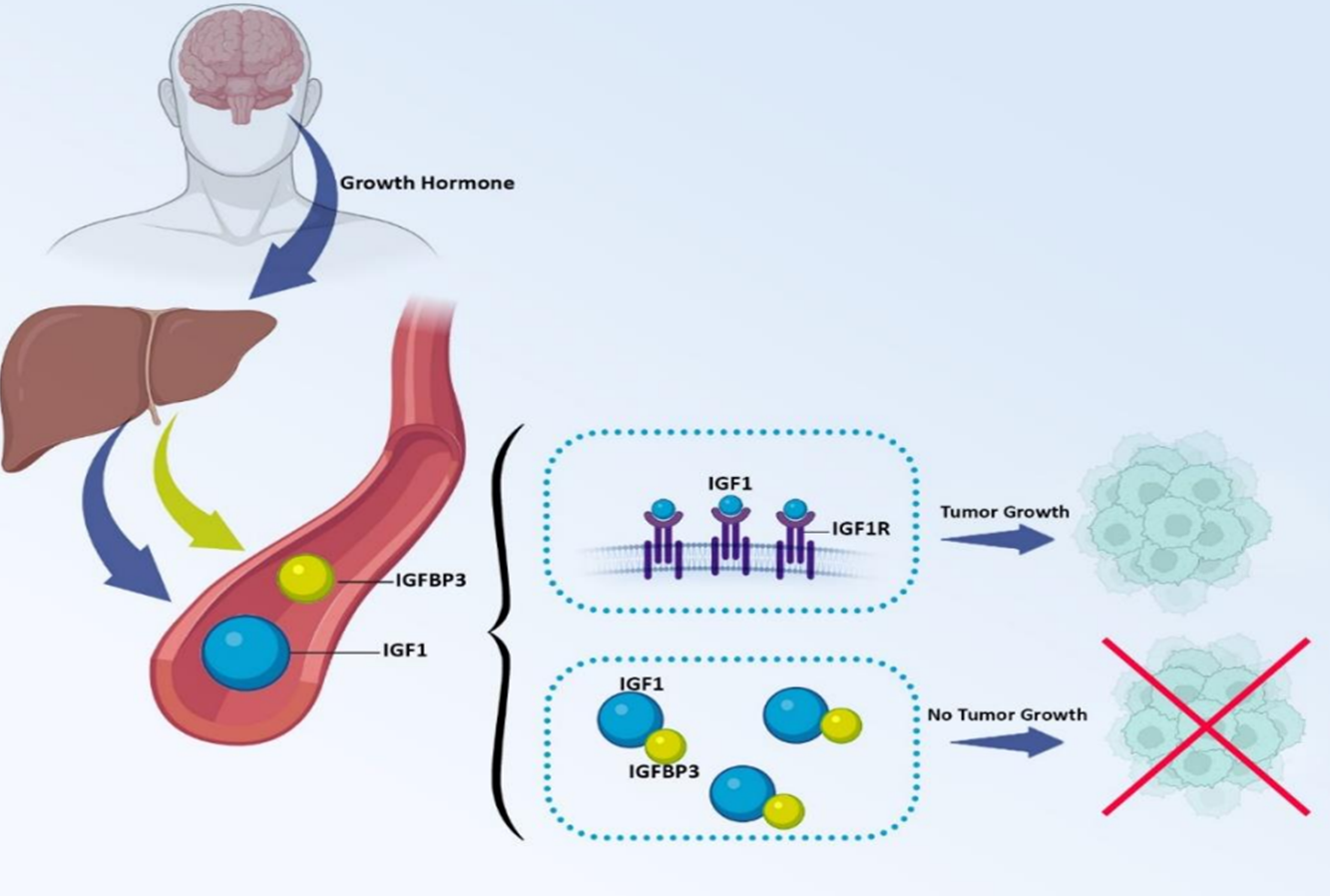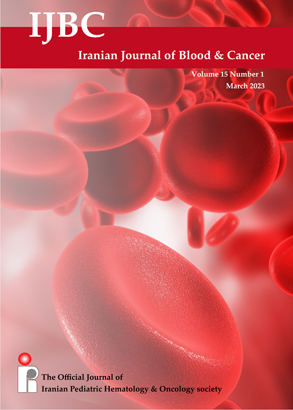
In this research, Mahshaad Norouzi and colleagues assessed a flow cytometry-based functional assay aimed at confirming Heparin-induced Thrombocytopenia (HIT). The study involved patients suspected of having HIT who were referred to the Iranian Blood Transfusion Organization from 2021 to 2023. Following a clinical evaluation and the calculation of 4Ts scores, anti-PF4 screening and the HIPA test were performed. A total of 30 samples that tested positive for HIPA and 30 that tested negative were selected for further analysis. The Emo-Test HIT confirm, a flow cytometry-based functional assay, was subsequently conducted, and the sensitivity and specificity for diagnosing HIT were evaluated. The findings indicated that the flow cytometry-based functional assay demonstrated strong sensitivity and specificity for confirming HIT diagnosis, suggesting its potential as a valuable tool in clinical practice. The full-text of their article is available for download here.

Mohammadreza Moonesi and colleagues investigated the expression levels of IGF family genes in the bone marrow of patients with acute myeloid leukemia (AML), specifically those classified as M3 and Non-M3, and compared these levels to those found in normal samples. They gathered a total of forty bone marrow samples from patients recently diagnosed with AML, in addition to fifteen samples from individuals without hematological malignancies. Their findings revealed a significant increase in the expression of IGF1, IGF1R, and IGFBP3 genes among AML patients. Conversely, the expression levels of IGF2 and IGF2R genes did not exhibit significant differences between the two groups. The authors concluded that the expression of this gene family was markedly elevated in the bone marrow of AML patients compared to normal individuals, likely due to the presence of malignant cells that produce proteins promoting the proliferation of these cells. Furthermore, these genes may serve as potential diagnostic biomarkers or therapeutic targets, warranting further investigation. The full-text of the article is available for download here,
==========================================================================================================================================================================================================================================================================================

Microbial Allies: How Gut Microbiota Influence the Effectiveness of Immune Checkpoint Inhibitors
Hamed Azhdari Tehrani and colleagues conducted a review on the impact of gut microbiota on the efficacy of cancer immunotherapies, with a particular focus on immune checkpoint inhibitors (ICIs). They noted that gut microbiota can modify the immune response within the tumor microenvironment (TME) by interacting with both innate and adaptive immune cells. According to their findings, one of the key mechanisms through which gut microbiota influences antitumor immunity is via the production of metabolites—small molecules that can travel from the gut to various parts of the body, thereby affecting both local and systemic antitumor immune responses. This investigation into the underlying mechanisms has provided significant insights for the development of microbiota-based therapeutic approaches, including fecal microbiota transplantation (FMT), probiotics, engineered microbiomes, and specific microbial metabolites. Furthermore, they examined several potential interventions that could enhance the effectiveness of ICIs, which may lead to the restoration or improvement of patient responses to these therapeutic agents. The full-text of their article is available for download here.
- Year 2025
- Year 2024
- Year 2023
- Year 2022
- Year 2021
- Recurrent Multifocal Langerhans Cell Histiocytosis With Orbital Manifestation
Venansya Maulina Praba *, Maimanah Zumaro Ummi Faiqoh, Ronik Harsono Kamal, Susy Fatmariyanti - Emerging Evidence of BRAFV600E in LCH: The Iranian Experience
Bibi Shahin Shamsian, Nader Momtazmanesh, Parastoo Molaei Tavana *, Maryam Kazemi Aghdam, Fatemeh Malek, Armin Shirvani, Hossein Najmabadi, Parvin Rostami, Mozhgan Hashemieh, Mahnaz Jamee - DNA Methylation-Dependent Regulation of Lipoprotein Lipase Expression During Human Mesenchymal Stem Cell Differentiation into Adipocytes
Seied Rasoul Razavi Babaheidari, Aryan Salahi-Niri, Mohammad Hossein Mohammadi, Mohsen Hamidpour, Shadi Esmaeili * - Evaluation of Complications and Treatment Outcomes Following Intraluminal Brachytherapy after Definitive Chemoradiation in Patients with Esophageal Cancer
Azadeh Taghizadeh *, Roham Salek - EGFR Mutations, ROS1, and ALK Rearrangements in Iranian Non-Small Cell Lung Cancer Patients
Babak Salimi, Maryam Mabani, Sharareh Seifi, Parsa Rostami, Ali Dehghanifard, Negin Khosravi, Marziye Madadkar Borna, Elaheh Sadat Jamali, Sarah Shiari, Hanieh Sattari, Adnan Khosravi * - Exploring the Intersection of Artificial Intelligence and Oral Cancer: Diagnostic Advances, Genetic Insights, and Precision Medicine
Rakhi Issrani *, Hafiz Muhammad Zeeshan, Nosheen Qamar, Abid Iqbal - The Role of Food containing Nitrosamine in the Development of Nasopharyngeal Carcinoma: A Literature Review
Achmad Chusnu Romdhoni *, Ali Mustofa, Pandit Bagus Tri Saputra, Mohd. Razif Mohamad Yunus - Investigating the Refractory Platelet Transfusion: Understanding the Underlying Factors, Diagnosis, and Effective Treatment Strategies
Elham Razani *, Maryam Maryam Khiabani Rad, Ehsan Larki Tork, Fourozan Bahmani - A Comprehensive Review of the Role of Viruses in the Onset and Progression of Lung Cancer
Abolfazl Jafari-Sales, Elham Nozohour-Leilabadi, Maryam Safari, Maryam Farahnaki-Sadabadi, Negin Yaghoubi-Azar, Mehrdad Pashazadeh * - Effectiveness of Photobiomodulation Therapy for Chemotherapy-Induced Peripheral Neuropathy in Cancer Patients: A Systematic Review and Meta-Analysis
Jigar Haria *, Vinod kumar, Sanjeev Jain, Ajay Kumar
Journal Information
- Journal Title: Iranian Journal of Blood and Cancer
- Publisher: Iranian Pediatric Hematology & Oncology Society
- Print ISSN: 2008-4595
- Online ISSN: 2008-4609
- Release interval: Quarterly
- Journal language: English
- Chairman: Dr. Mohammad Saeid Rahiminejad
- Editor-in-Chief: Dr. Hassan Abolghasemi
- Associate Editors: Dr.Davood Bashash; Dr. Mohammad Faranoosh
- Executive Editor: Amir-Mohammad Yousefi
- Current Issue: 2025، Volume 17، Number 1
Indexing Databases
Newsletter subscription
Enter your email address to have site news and announcements delivered directly to your inbox.
CiteScore



